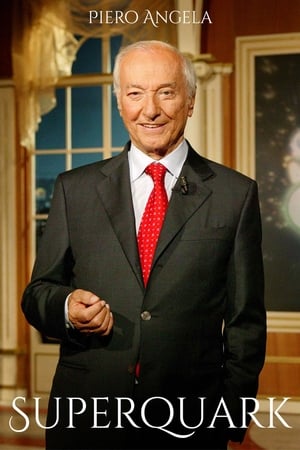
Television program of cultural diffusion, born in September 1995, designed and conducted by Piero Angela, development of transmission appreciated Quark.
Showing Season 0 of 29
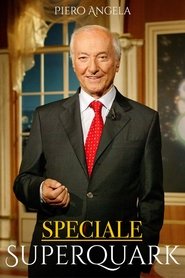
Specials
1995
No overview available.

01. Serata Egitto - L'ultima grande scoperta
1995-06-09
No overview available.

02. Versailles - Una serata con il Re Sole
1998-12-18
In this episode we will explore the world of the Sun King as if it were a distant planet where everything was different: medicine, technology, education, hygiene and daily life. Even nature was different: Europe at that time was still full of forests where deer, wild boars and wolves roamed. Hunting was a typical pastime of the king, Louis XIV set out every day on horseback with his squires to go and capture some game. He was a good eater at the table, but devouring all that game eventually gave him a deadly gout, which at a certain point degenerated into gangrene that led to his death.
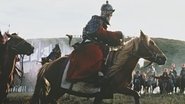
03. Napoleone - Le otto ore di Waterloo
1999-02-19
Waterloo was Napoleon's last battle, marking his final disappearance from the scene and his exile on Saint Helena until his death. The Battle of Waterloo was one of the bloodiest events of the 19th century: it is estimated that the dead, missing and wounded were a total of 48,000, all of which took place in the space of a few hours, on a relatively small terrain and with a violence rarely seen.
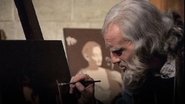
04. Festa di compleanno
1999-06-04
The episode celebrates the 2000 episodes of Quark and all the programs derived from it.
05. Il grande viaggio di Marco Polo
1999-10-05
In this episode we will retrace Marco Polo's journey, the journey he recounted in his famous book Il Milione. 15 thousand kilometers from Venice to Beijing, crossing deserts, steppes and very high mountains and back. We will understand what it meant to travel at that time in difficult territories, without roads, without the possibility of aid and resources, crossing much of the Middle East, crossing the Himalayas, to finally arrive in China.
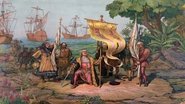
06. Leonardo Da Vinci: ritratto di un genio (prima parte)
1999-12-28
Our story begins in Vinci, not far from Florence, on April 15, 1452. It is the mid-1400s, a time of great intellectual fervor in Tuscany, Florence, Siena, Pisa, but also elsewhere in Italy. But Leonardo does not know all this, he lives in Vinci and attends the abacus school.

07. Leonardo Da Vinci: ritratto di un genio (seconda parte)
2000-01-04
No overview available.

08. Cristoforo Colombo - Storia di un incredibile viaggio
2000-03-03
In this episode we will follow step by step a truly extraordinary story: that of Christopher Columbus. A man who had an idea that was considered crazy at the time and made it happen. That is, reaching the East by passing through the West, crossing an immense and unknown ocean.
09. La straordinaria storia di Giuseppe Verdi
2000-12-13
Giuseppe Verdi was not only a composer, but a man with an extraordinary life, a life that we will tell you about in this episode.

10. Odissea - Il fantastico viaggio di Ulisse (prima parte)
2000-12-27
No overview available.
11. Odissea - Il fantastico viaggio di Ulisse (seconda parte)
2001-01-03
No overview available.

12. Nove mesi - Come nasce la vita
2001-01-10
No overview available.
13. Da zero a tre anni - Come nasce l'intelligenza
2001-01-17
No overview available.
14. C'era una volta... cento anni fa
2001-01-26
No overview available.
15. L'incredibile storia di Enrico Fermi
2001-09-18
On the occasion of the centenary of his birth, in 2001, Superquark dedicated a special episode of the program to Enrico Fermi, in two parts. Mixing excerpts from films and documentary narration, the program retraces Fermi's origins and his studies that took him, very young, to the Scuola Normale di Pisa. It talks about the fertile period of "I ragazzi di Via Panisperna" in Rome when together with Rasetti, Amaldi, Segré, Majorana, D'Agostino and Pontecorvo he worked on reactions produced by atomic nuclei by the action of slow neutrons. Explores the group's relations with the fascist regime and the mysterious disappearance of Majorana; shows some laboratory instruments used by Fermi in the 1930s; talks about his departure for the USA, the awarding of the Nobel Prize in 1938 and the work of building the atomic pile, with the first nuclear chain reaction on 2 December 1942.
16. Umberto Nobile. La tenda rossa: SOS dal polo nord (prima parte)
2001-12-26
No overview available.
17. Umberto Nobile. La tenda rossa: SOS dal polo nord (seconda parte)
2002-01-02
No overview available.

18. Michelangelo - In compagnia di un genio (prima parte)
2002-12-26
No overview available.

19. Michelangelo - In compagnia di un genio (seconda parte)
2003-01-02
No overview available.
20. Giuseppe Garibaldi - Storia di un eroe (prima parte)
2003-12-09
Giuseppe Garibaldi, a name that immediately evokes 100 images, memories and sensations. We all met him for the first time in school books with his strange cap and poncho.
21. Giuseppe Garibaldi. Storia di un eroe (seconda parte)
2003-12-10
In this episode, our journey continues alongside Giuseppe Garibaldi, this extraordinary character who, after fighting for the ideals of freedom and equality in South America, finally manages to return to his homeland after a long exile and puts his passion at the service of Italian unity.
22. Luigi XVI - L'ultimo giorno
2003-12-16
No overview available.
23. La vera storia della principessa Sissi
2003-12-23
No overview available.
24. Mozart - La storia di una vita
2003-12-30
No overview available.
25. Nella terra dei faraoni - La battaglia di Megiddo
2004-12-08
No overview available.
26. Nella terra dei faraoni - Ladri di tombe
2004-12-15
No overview available.
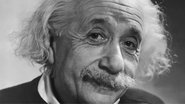
27. Colosseo - L'arena dei gladiatori
2004-12-22
No overview available.
28. Pompei - Cronaca di una fine
2004-12-29
No overview available.
29. Carlo Magno - La corona e la spada
2005-12-14
No overview available.
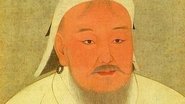
30. Gengis Khan - Il cavaliere dell'Apocalisse
2005-12-21
Demon and divinity. This is how Genghis Khan, the ruthless leader of the Mongols and ruler of the largest empire ever governed by a single man, was considered in the Middle Ages. Accurate historical reenactments, enhanced with computer graphics and cutting-edge compositing techniques, form the essence of a documentary that uses not only archaeology at spectacular ancient sites, but also the traces of ancient Mongolian culture left in the present.

31. Napoleone: seguendo la Grande Armata
2005-12-28
This episode of the Speciali Superquark is dedicated to the most famous and celebrated of leaders: Napoleon Bonaparte. After the great enthusiasm and bloodbaths of the French Revolution, a Corsican general, Napoleon, appears first on the military scene and then on the scene of the great powerful people of the earth, whose action will have a profound impact on the history of modern Europe. Piero Angela retraces his story starting from the moment of the coup d'état, but above all following the events of the "Grande Armèe", Napoleon's great army, which for almost twenty years crossed the most diverse fronts: from Austria to Italy, from Prussia to Spain, from Egypt to Russia. There is no shortage of intrigues that surrounded him and his family, and his great loves. The images of the beautiful drama co-produced by Rai in 2002, directed by Yves Simoneau, bring the power of his story to life.

32. Chernobyl - Nel buio degli anni luce
2006-04-19
Twenty years after the Chernobyl tragedy, Piero Angela and a crew from Superquark have produced a special dedicated to those places that are still isolated for a radius of 30 km. The nuclear reactor, which exploded on the night of April 26, 1986, is not yet turned off: the melted fuel is still incandescent. The emergency cover has cracks, and there are fears of a collapse if nothing is done soon. The Superquark crew went to the sites of the disaster: to the nuclear power plant and to the ghost town of Prypiat, hastily abandoned by its inhabitants and left as it was at the time. An English fiction will reconstruct with actors what happened that night in the control room, and all the lies that followed in the following 36 hours. With Paco Lanciano and with the help of models Piero Angela will explain why the reactor exploded.

33. L'uomo che creò la Cina
2006-12-21
No overview available.

34. La vera storia del pirata Barbanera
2006-12-27
No overview available.
35. Augusto - Nascita di un Impero
2007-01-03
Imperial Rome. An expanding city made of large squares, palaces, marble, aqueducts, temples. After many years of war, Rome discovered itself to be an enormous and powerful city, the head of all peoples. It was led by a single man: his name was Gaius Julius Caesar Octavian, they called him Augustus, that is, the consecrated one. It was Augustus who brought peace to the chaos and made Rome the center of the universe, creating a center of power that represented the model for the 79 emperors who succeeded him over the course of the following four centuries.
36. Elisabetta I - Una donna per un grande regno
2007-12-19
No overview available.
37. Madame de Pompadour - Amore e potere
2007-12-26
No overview available.
38. La vera storia di Mata Hari
2008-01-02
Dancer, adventurer, femme fatale and above all secret agent, intriguing and mysterious spy. Her name is Mata Hari. A character capable of throwing Europe into turmoil in the years between the Belle Epoque and the First World War. Margareta Geertruida Zelle, this is her real name, was born in Holland in 1876. As a young woman, after a marriage that ended badly, she moved to Paris. She worked as a model, a horsewoman and improvised as a dancer, taking advantage of the interest and success of exotic dances among the French public. And she became, at the beginning of the twentieth century, an international star, who made men all over Europe lose their heads.
39. Il paese senza figli
2008-06-23
The structure of the Italian population, demographers say, is becoming profoundly unbalanced, as never before in our history: on one side the collapse of births, on the other the dizzying increase in the elderly. In the middle, the drastic reduction of that age group that produces income. The data are eloquent: each couple, today, generates on average little more than one child: at this rate each generation is almost halved and the young people in Italy will be reduced to a flicker. Meanwhile, the elderly have doubled, in the last 50 years, and the over-eighties have quadrupled. This completely new situation will have repercussions in every field: pensions, healthcare, assistance, and of course immigration. UN projections predict that in 2050 (when today's newborns will be 42 years old) there will be 10 million immigrants in Italy.
40. Cercatori di tesori - Egitto: l'avventura della scoperta
2008-12-23
No overview available.
41. Cercatori di tesori - Schliemann-La scoperta di Troia
2008-12-30
No overview available.
42. Cercatori di tesori - L'oro di Cortes
2009-01-07
No overview available.
43. Nel segno del comando: Nerone, cronache da un Impero
2009-12-23
No overview available.
44. Nel segno del comando: Attila, il cavallo e la spada
2009-12-30
Attila king of the Huns. Of the barbarians who pressed at the gates of the empire, undoubtedly the most famous. At the head of an army composed of heterogeneous tribes, he challenged the Roman Empire, now close to disintegration, and divided between Ravenna and Constantinople, devastating the Europe of the time far and wide, even reaching Italy. With his death, his empire also disappeared. Also for Attila, the story continues thanks to a drama, this time from the BBC series Warriors. In the studio, Prof. Alessandro Barbero, consultant for the episode. The external shots, in addition to the Budapest Museums, which preserve traces of the skulls and gold of the Huns, were made in Istanbul, the ancient Constantinople. On its ancient walls and in the incredible underground cisterns full of decorated columns. Alberto Angela visited Aquileia, an important city of the Roman Empire, hit by the fury of Attila, where beautiful mosaics are still visible.
45. Nel segno del comando: Shogun il grande samurai
2010-01-05
Shogun is the story of the Great Samurai who in 1600 reunified Japan, then divided into a myriad of clans, becoming the undisputed leader of the country, after the bloody battle of Sekigahara. His name was Ieyasu Tokugawa, and his descendants would inherit this absolute power until the last decades of the 19th century, when Japan emerged from its long isolation and opened up to the modern world. The Speciali SuperQuark went to various ancient cities of Japan to tell this story, using the fiction produced by the BBC on the life of the famous Samurai. Alberto Angela followed the construction of a katana, the famous samurai sword, made by one of the very few craftsmen able to replicate the ancient procedures. In the studio, Prof. Franco Mazzei will talk about the influence of what has been defined as the "Japanese Middle Ages" on the traditions and values of today's Japan.
46. Dopo l'Islanda: cosa bolle sottoterra?
2010-06-10
SuperQuark, the most popular television magazine on science, nature and technology, created and hosted by Piero Angela, opens the season with a special episode, "After Iceland: what's boiling under the ground?" entirely dedicated to volcanoes. The program opens with an analysis of the current situation in Iceland. A team from SuperQuark and correspondent Cristiano Barbarossa will take stock of the eruption and its consequences. Lorenzo Pinna will instead explain the vulnerability of complex systems and also the difficulties of defending oneself from phenomena of this size. It will also be an opportunity to delve deeper, with Alberto Angela, into the events that accompanied the historic eruptions of Vesuvius and Etna as well as the great African volcanoes, which created extraordinary landscapes, not just destruction.

47. In Africa, sulle tracce di Livingstone
2010-12-23
The first episode of this year's Speciali Superquark deals with a character who has become legendary: David Livingstone, an English missionary, doctor and explorer who, in the second half of the 19th century, left for Africa in search of the source of the Nile. It may seem like an original and slightly crazy idea, but many had it at the time, such as Burton and Speke, who were also funded by the Royal Geographical Society. But perhaps the thing that everyone remembers most is the famous phrase that, with a typically British imperturbability, journalist Henry Stanley uttered when he found Livingstone in Ujiji near Lake Tanganyika after eight months of searching across half of Africa: "Dr. Livingstone, I presume". In Africa, Livingstone is a legendary figure, especially for his fight against the slave trade. Places named in his memory can be found in almost every African country.

48. Shackleton, l'eroe dell'Antartide
2010-12-30
The second episode of the Speciali Superquark deals with one of the most incredible feats in the history of exploration. It is the story of Ernest Henry Shackleton and his men, who left England in August 1914 to make the first crossing of Antarctica on foot. But the ship Endurance was trapped by ice and sank. Then Shackleton carried out a desperate feat that has now become legend: he left most of the men in a sort of camp on the ice and set off with a lifeboat and 5 other men in the direction of South Georgia, a dot in the ocean. Fighting against ocean waves, storms and deadly winds, he managed to land, but the island had high mountains and glaciers. He left three more men in another camp and climbed the mountains with two companions, reaching a whaling base. From there, the rescue operations began, which failed twice. On the third attempt, 2 years and 10 months after leaving, Shackleton will save all his men, welcomed as a hero in his homeland!
49. L'incredibile storia di Antonio Meucci
2011-01-03
The third episode of the Speciali Superquark deals with the story of a brilliant man, creator of many inventions and owner of 22 patents: a new type of paper for printing, a smokeless kerosene lamp, fizzy fruit drinks, etc. A man who dreamed of running words on an electric wire to communicate at a distance, an invention that opened up boundless worlds with unforeseen repercussions to this day: the telephone. The man was Antonio Meucci, a student at the Academy of Fine Arts in Florence, linked to the movements for the Unification of Italy. From Florence he emigrated with a theater company to Cuba, which at the time had one of the largest theaters in the world. After 15 years he left for the United States, a free land where everything was possible and to which exiles from half the world went.

50. 30 anni di Superquark: un viaggio sorprendente
2011-12-19
No overview available.
51. La riscoperta della natura nascosta
2011-12-27
No overview available.

52. Viaggio tra le meraviglie, dalle piramidi a Versailles
2012-01-03
Starting from the Colosseum, in this episode we would like to propose a journey across four continents to discover ten great works of the past, which have left a deep mark on human history, for the most diverse reasons. These are royal palaces, cathedrals, palaces, monuments, which represent some of the highest places in the path of humanity.

53. Speciale economia - Uscire dal tunnel
2012-12-07
A Superquark Special dedicated to the causes of the crisis and the possibilities of growing again. This is the very current theme of the episode that will be broadcast on Friday 7 December in prime time on Rai Uno. The program will address the topic in a clear and, above all, creative way. Piero Angela, in the studio, will have not only guests, animations, films, but also stage machines that will allow you to visualize certain concepts: scales, wheelbarrows, bins, clocks, decks of cards, trapdoors, tunnels, buckets, ladles, balloons and even an 11-month-old baby and a cow! The Special will try to understand where the Italian machine is stuck and how to restart to get out of the tunnel. An opportunity to get an idea of the real problems, risks and also opportunities that are opening up for our country beyond the daily political debate.
54. Quella notte a Mayerling - La tragedia degli Asburgo
2012-12-21
Two gunshots, in a castle a few steps from Vienna, in Mayerling. To erase the memory of that night, the place was transformed into a convent, but it has become a place of pilgrimage for those who still remember the end of Sissi's son: Rudolf II of Habsburg. Piero Angela reconstructs this story, telling a love story, that between Rudolf and the very young Mary Vetsera. But also a particular moment in European History, between intrigues and power games, against the backdrop of the Imperial Court of Vienna. The story, which shook public opinion at the end of the nineteenth century, sparked the imagination of many novelists and directors in the following years. Historians have questioned themselves and lined up on different fronts, because Rudolf would have been the heir to the throne of the most important empire in Europe, the Austro-Hungarian one. His tragic death was intertwined with the events that led to the First World War and perhaps changed the balance of power in Europe.
55. Il caso Rasputin - La trappola
2012-12-28
December 1916: four conspirators set a trap in a princely palace in St. Petersburg. Cyanide pastries for a guru who has managed to gain the trust of the Tsarina and is trying to influence the course of the war. Venerated and hated, Rasputin was the protagonist of one of the most incredible rises to the halls of power. This is also a controversial and ambiguous story, at the beginning of the twentieth century, just before the Russian Revolution and the First World War. The Romanovs, the last Tsars, weak and prey to a Siberian peasant, loved not only by Tsarina Alexandra, but also by the Russian people. All killed: the Romanovs by the Bolsheviks who seize power and Rasputin by a conspiracy of nobles who feel in danger. This story has also inspired countless books and films.
56. Uccidete il re! Cromwell e la nascita della democrazia
2013-01-04
January 30, 1649: King Charles I is beheaded. We are not in France at the end of the eighteenth century, we are in England 150 years earlier. It is the first time that a king is judged and condemned to death by his people, who do so by taking power in Parliament. A little-known story, even if all visitors to London have passed in front of the statue of the protagonist of this story, Oliver Cromwell, placed in front of Westminster, the seat of the English Parliament. This time too we have a protagonist loved and hated and once again we are at an epochal turning point in the great History. The traumatic political change in England precedes the French and American revolutions. A long history that will lead to the birth of modern democracies, even if with tortuous and controversial passages. For the narration we used a beautiful English film, starring Tim Roth.
57. Viaggio alla scoperta del cervello
2013-12-19
Piero Angela takes us on a great journey into intelligence and emotions, to discover the most complex object in the known universe: the brain. How do thoughts form, when does aggression arise, why do we sometimes feel like we've already seen a scene? A guest in the studio is neuroscientist Piergiorgio Strata, who will explain the limbic system, the area that "colors" our life, so to speak, which is at the origin of pleasant or unpleasant sensations, but also of aggressive behavior. The truly surprising story of an American railroad worker who in the mid-19th century survived the very serious accident of a rod that pierced his skull and suddenly changed his character, becoming very aggressive. Alberto Angela will explain how our brain has developed over time, with some very interesting archaeological finds. Ethologist Danilo Mainardi will also make a quick foray into the brains of animals, from ants to chimpanzees.
58. Ridere e piangere: le emozioni della vita
2013-12-26
Why do we laugh and why do we cry? In the second episode of Superquark, the emotions of life, an opportunity to listen to the experts, but also the masters of laughter. Everywhere in the world, we laugh and cry in the same way. It is a universal, innate language. There is no need to learn it. When faced with a certain situation, the brain sends signals that produce a series of contractions of the facial muscles and breathing, causing vocalizations and tears. Some individuals are more reactive, others less so. Some hold back their emotions, others less so. But everyone has burst into tears or laughed in an uncontrollable and exuberant way. Laughing and crying represent an ancient tool for communicating, for expressing joy, pain, pleasure in being together, suffering, requests for help. To explain all this, Piero Angela will interview the psychologist Enrico Ricci Bitti, head of the Research Center on Emotions and Health at the University of Bologna.
59. Il cervello contro la macchina: la grande sfida
2014-01-02
In the last episode of these Superquark Specials we move from the brain to the machine, the attempts to create artificial intelligence. Machines that imitate human capabilities have already cannibalized millions of jobs, and the process is now accelerating. On one hand, the wonders of increasingly intelligent computers capable of learning and performing incredible functions: on the other, a huge segment of jobs at risk. It's no longer science fiction, what's happening? Piero Angela in the studio with the scientific director of the Genoa Institute of Technology Roberto Cingolani to understand what this match between man and machine will be like and how far computers will be able to push their capabilities. In fiction and in reports, we will see everything from Deep Blue, the first computer that defeated the world chess champion, to Watson, the computer that performs medical consultations. And from smartphones, which read, write, translate and respond in kind to the self-driving car.
60. 13 miliardi di anni: in viaggio nell'universo
2015-06-11
In the first episode, the program will begin by explaining what we understand today about the immense initial explosion: the Big Bang. Researchers believe that fundamental things happened in the first billionths of a second: first the birth of space-time and gravity, then the appearance of the first building blocks of matter, but also of antimatter. Where the antimatter (very abundant, it seems, initially) has ended up today is unknown: probably in this turbulent phase, matter and antimatter, meeting, annihilated each other, transforming into pure energy. However, researchers believe, it cannot be ruled out that there is still antimatter around in the Universe; and that perhaps antistars and antigalaxies exist.
61. 13 miliardi di anni: la straordinaria storia della Terra
2015-06-18
In this second episode the program will tell the great changes that have occurred in the past on Earth and the great capacity of life to survive.
62. 13 miliardi di anni: la straordinaria storia della Terra
2015-06-18
In this second episode the program will tell the great changes that have occurred in the past on Earth and the great capacity of life to survive.
All Seasons
 Specials
Specials